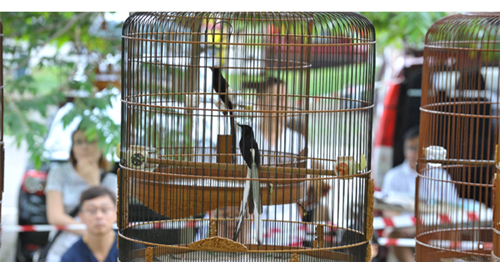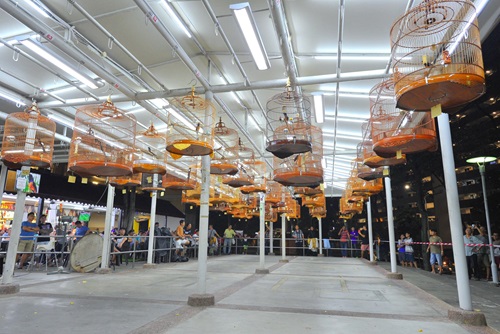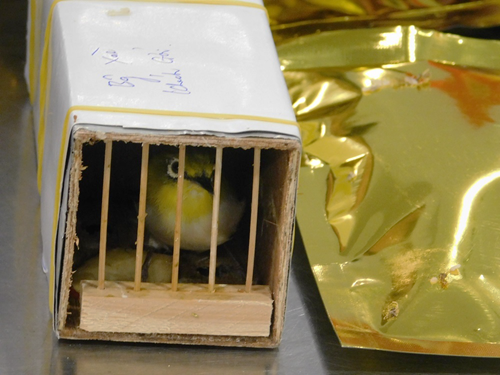Songbirds
Songbirds

Songbirds (or perching birds / passerines) refer to birds belonging to the suborder Passeri of the order Passeriformes. These birds learn to sing as a form of vocal communication to allow other members of the same species to recognise themselves. There are around 8,000 extant species of birds around the world and songbirds make up nearly half of that number, with about 4,000 species spread across 35 to 55 families.
Songbirds are often kept as pets for their melodious singing and as symbols of status. In some countries, songbirds may also be a source of financial gain as owners enter them into singing contests.
Based on the IUCN’s Red List of Threatened Species, the conservation status of various songbird species can range from least concern to critically endangered. The Black-winged Myna is an example of a critically endangered songbird that is still being captured and sold as pets illegally in Southeast Asia.

Illegal songbird trade
Trade regulation for songbirds
In Singapore, under the Endangered Species (Import and Export) Act (Cap. 92A), it is an offence to possess, sell, offer for sale, or publicly display any CITES-listed songbird species without a valid CITES permit. Under the Wildlife Act (Cap. 351), it is an offence to kill, trap, or take song birds in our parks and nature reserves without approval.
In addition, during the first Asian Songbird Trade Crisis Summit held in 2015, The Southeast Asian Songbird Working Group identified a total of 28 species of songbirds facing high conservation concern and proposed various action plans such as systematic monitoring and increasing effective regulation. These include the Black-winged Myna, White-rumped Shama and Sumatran Laughingthrush. For a more detailed list of the 28 songbird species identified by the Asian Songbird Trade Crisis Summit, do refer to the report here.
How can you help?

If you are intending to purchase songbirds, always check to ensure that it is from a legal source. If the songbird is a CITES-listed species, ensure that the shop has a valid CITES permit for that bird, and for the shop to handover the CITES permit to you when you purchase it.
For the import and export of songbirds and other ornamental birds, various requirements such as applications of permits through NParks and ensuring that the birds fulfil veterinary conditions are to be met. For more detailed information on importing and exporting ornamental birds, please refer to this link.
If you spot any occurrences of poaching of wild songbirds, illegal wildlife trade, and illegal ownership of species and its parts, you may also contact NParks using the online feedback form or call 1800-476-1600. All information shared with NParks will be kept confidential.

